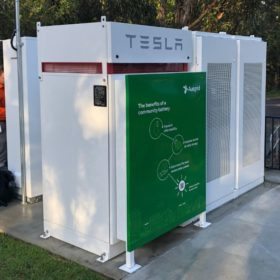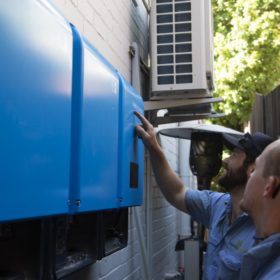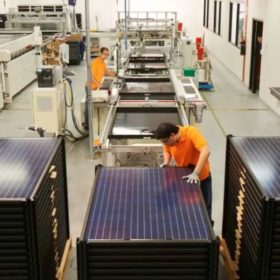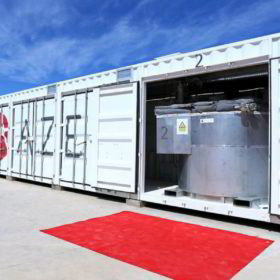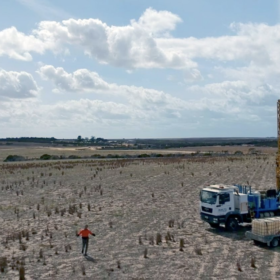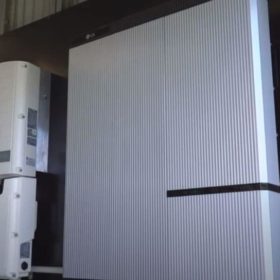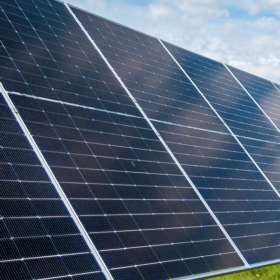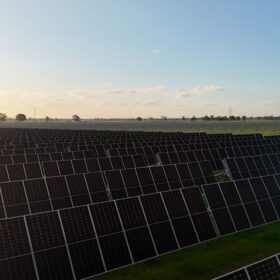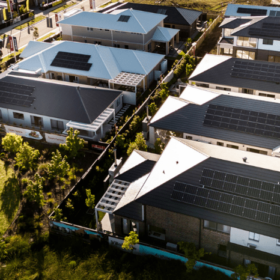Ausgrid teams with Simply Energy on community battery trial
New South Wales network operator Ausgrid has signed an agreement with Simply Energy which will see the Melbourne-based energy retailer operate the electricity distribution company’s three community batteries in the National Energy Market.
Vast majority of Australian support home battery subsidy, poll finds
A poll of more than 2,000 Australians has found 78% agree the federal government should expand the national rooftop solar subsidy to include household battery storage. The concept has floated around for the last years, most notably in the form of a federal bill tabled by independent MP Helen Haines, but may have an uptick of support amid spiralling energy prices.
Independent tool providing answers to complexities of home solar, storage launched
A free version of SunSPOT, a tool for tailored guidance on the ideal solar and battery set ups, has now been launched. Developed by APVI and UNSW, the online tool allows users to calculate size, cost and potential savings from household renewable systems and is the only such platform offering this information without a sales motive.
Panasonic unveils vehicle-to-home system for PV-powered homes
Panasonic claims that its new vehicle-to-home system can increase the self-consumption rate of residential solar and storage capacity to 90%.
Tindo’s sales skyrocket as consumers turn to homegrown solar
Australia’s only solar panel manufacturer, Tindo Solar, has announced a doubling of sales for both solar panels and battery storage in recent months. The manufacturer attributes the boom to the concatenation of rising energy costs, a potential recession, and increasing consumer awareness about the importance of buying quality products.
AEMO rolls out roadmap to 100% renewables
With Australia’s energy system rapidly transitioning from a traditional dependency on coal-fired power generation towards a future built on renewables, the market operator has detailed the engineering roadmap required for the country’s main power systems to operate on 100% renewable energy more frequently and for longer periods.
Molten aluminium storage startup enters Australian market, apparently
In a decidedly confusing announcement, Swedish molten aluminium storage startup Azelio says it has secured a conditional order from relatively unknown Australian company MPG Built. Azelio says the order will see it provide “energy-as-a-service” using five of its TES.POD storage units combined with solar power.
Environmental approval paves way for integrated graphite supply chain
Environmental approval from the government of South Australia means Renascor Resources is now a step closer to realising its integrated graphite supply chain. Graphite is a key component in lithium-ion battery production and Renascor’s South Australian deposit is considered the largest outside of Africa.
LG solar battery recall expanded, NSW reports battery fire spike
The ACCC, Australia’s consumer watchdog, has begun contacting almost 5,000 households as part of an updated recall on LG solar batteries prone to overheat and catch fire, with the watchdog noting the dangerous products may fall under various brand names. The news comes as NSW Fire and Rescue reported a massive spike in battery fires for 2022.
Energy optimiser SolarEdge expands into full home solution
Customers’ desire for fast, simple access to rooftop solar has driven the industry towards one-stop solutions, with all system components under the same brand and warranty arrangements, and integrated under a proprietary intelligent digital control system. pv magazine Australia spoke with Gavin Merchant, country manager for Australia and New Zealand, about the new SolarEdge Home equation and the economic drivers of full rooftop package adoption.
